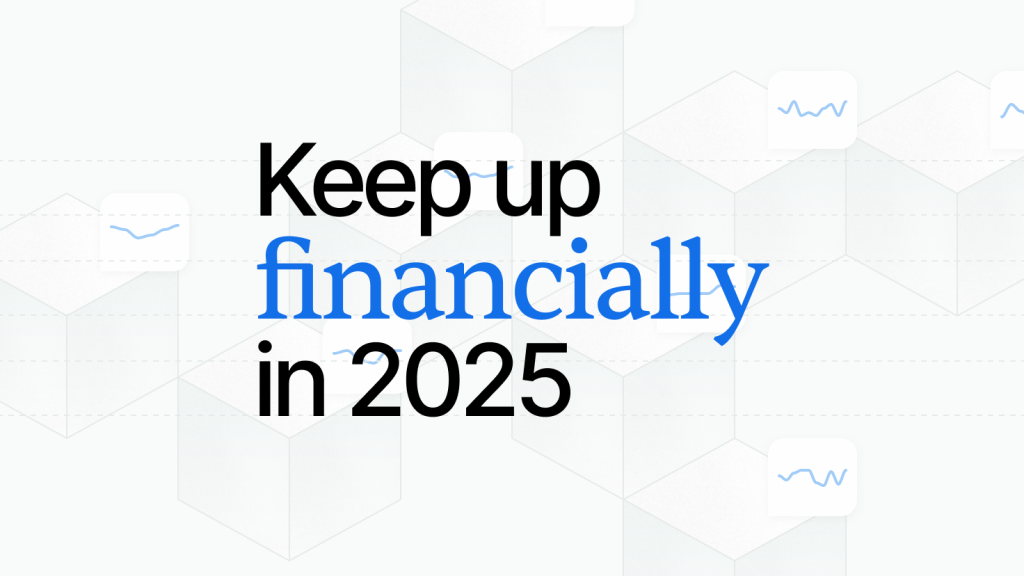In the dynamic landscape of personal finance, identifying good investment ideas is important for individuals seeking to grow their wealth and secure their financial future. In 2025 before you start investing, it’s crucial to consider economic conditions, technological advancements, and societal shifts that may influence market trends. Let’s explore the best investment ideas in 2025. From traditional stocks and bonds to emerging market opportunities and alternative investments, we’ll help you navigate the modern, often complex world of finance.
7 best investments right now:
1. Stock market
2. Bonds
3. Real estate
4. Commodities
5. Loans
6. Cryptocurrency
7. Sustainable and ESG investing
1. Traditional stocks: The backbone of investment portfolios
Investing in the stock market offers numerous advantages and opportunities for investors, including higher returns, diversification, and a hedge against inflation. While stocks come with risks, the potential rewards can be significant.
Long term, the stock market has historically provided higher returns than many other investments, such as bonds or savings accounts. The stock market offers a wide variety of investment options across different sectors and industries, allowing investors to diversify their portfolios.
Investing in the stock market can also serve as a hedge against inflation, which has been a recent issue in many countries. Historically, the returns on investments in the stock market have outpaced the rate of inflation, helping investors maintain the purchasing power of their capital over time.
Best for: Those wanting to generate regular passive income with higher risk but also potentially higher return.
2. Bonds: The safe haven
Bonds are typically considered low-risk investments. They offer unique benefits that can appeal to investors looking for income, stability, and risk management.
Bonds typically pay interest at regular intervals, providing a steady stream of income to investors. This feature is particularly attractive to retirees and those who need to generate a predictable flow of cash from their investments.
Best for: Those wanting to generate regular passive income with less risk than stocks.
3. Real estate investment trusts: Dual returns
Real estate investment stands out for its tangible nature and the dual returns offered through both rental income and property value appreciation. Direct property investment, real estate investment trusts (REITs), and real estate crowdfunding platforms provide various entry points into this market, each with its own set of benefits and considerations.
Direct investment in real estate usually requires significant capital. In contrast, REITs allow investors to gain exposure to real estate with much smaller investment amounts, making it accessible to a broader range of investors.
Real estate not only diversifies an investment portfolio but also serves as a hedge against inflation, as property values and rents typically increase with rising consumer prices.
Best for: Investors who want to invest in real estate without significant capital, and those who don’t want to deal with the complexities of property management, such as maintenance issues and tenant relations.
4. Commodities: Preserving value
Investing in gold and precious metals can offer diversification, protection against inflation and currency devaluation, and a hedge against economic uncertainty.
Unlike stocks and bonds, gold and precious metals are tangible assets. Holding physical gold or other precious medals offers some investors a sense of security, as they don’t rely on the performance of a corporation or government entity. Instead, gold and other precious metals rely on scarcity and the demand of their unique physical and chemical properties.
Gold and medals are highly liquid assets. They can be easily bought and sold through various channels worldwide, including bullion dealers, banks, and online platforms. Physical gold, in the form of coins or bars, and gold ETFs are among the most liquid forms of gold investment.
Best for: Investors who are looking to mitigate risk, protect against inflation, and those seeking an alternative to traditional financial assets.
5. Loans: An alternative investment
Loans can offer higher interest rates compared to traditional savings accounts or fixed-income securities like government bonds, especially in a low interest rate environment. The potential for higher returns is particularly appealing for investors seeking to enhance their income or grow their portfolios.
Investors can typically select loans based on the borrower’s credit risk, loan term, and interest rate, among other criteria. This level of control enables investors to manage their risk-return profile actively, opting for higher-risk, higher-return loans or more conservative options.
Best for: Those looking to diversify their portfolios, generate passive income, and achieve potentially higher returns than traditional fixed-income investments.
6. Cryptocurrency: Innovative financial technologies
While the crypto market is known for its high volatility and risk, it presents unique opportunities and advantages for investors. Cryptocurrencies have shown the potential for substantial returns on investment over short periods, outperforming traditional asset classes.
One of the foundational appeals of cryptocurrencies is their decentralized nature, as the crypto market operates on a worldwide scale, which reduces the reliance on central financial institutions and systems. The correlation with traditional financial markets and crypto is low, meaning they can act as a hedge against market downturns in other areas of the economy.
Best for: Investors who are well-informed about the technology, comfortable with high volatility, and are seeking diversification.
7. Sustainable and ESG Investing: Aligning with personal values
Investing in sustainable and environmental, social, and governance (ESG) criteria has gained significant momentum over the past decade, reflecting a growing recognition of the interdependence between societal well-being, environmental health, and economic prosperity.
Many investors are drawn to sustainable and ESG investing because it allows them to align their investment portfolios with their personal values and concerns about environmental protection, social justice, and ethical governance.
Consumer preferences are shifting toward sustainable products and services, driving demand and creating growth opportunities for companies with strong ESG credentials. Investors looking to capitalize on these market trends may find sustainable and ESG-focused investments particularly attractive.
Best for: Investors who seek not just financial returns, but want their investments to mirror their personal ethics. Sustainable and ESG investing is also great for long-term investors who understand that companies focused on sustainability are preparing to thrive in the future, making them potentially more resilient and profitable over time.
Strategic diversification and due diligence
When exploring these money investment ideas in 2025 or thinking of how to generate investment ideas, it’s crucial to do thorough research and consider your financial goals, risk tolerance, and investment horizon. Diversification across different asset classes and sectors can help mitigate risk. By staying informed, investors can better position themselves to capitalize on the opportunities that both align with their investment objectives and the current times, paving the way for financial growth and stability.
Mintos offers a unique mix of alternative and traditional assets that are ideal for diversification, preparing for the economic environment 2025 brings. It’s easy to get started in minutes with our ready-to-go portfolios.
Disclaimer:
This is a marketing communication and in no way should be viewed as investment research, advice, or recommendation to invest. The value of your investment can go up as well as down. Past performance of financial instruments does not guarantee future returns. Investing in financial instruments involves risk; before investing, consider your knowledge, experience, financial situation, and investment objectives.

